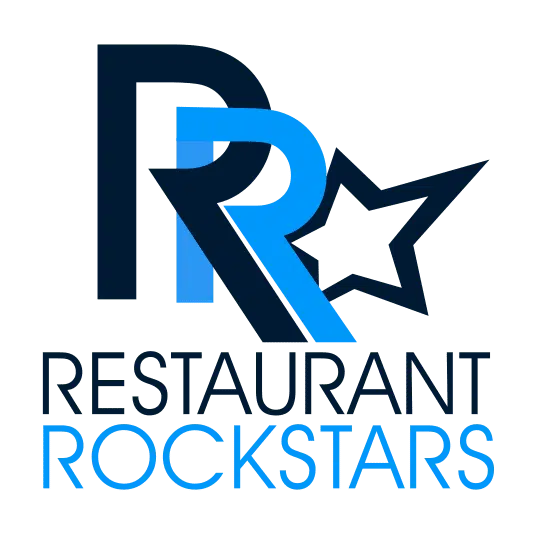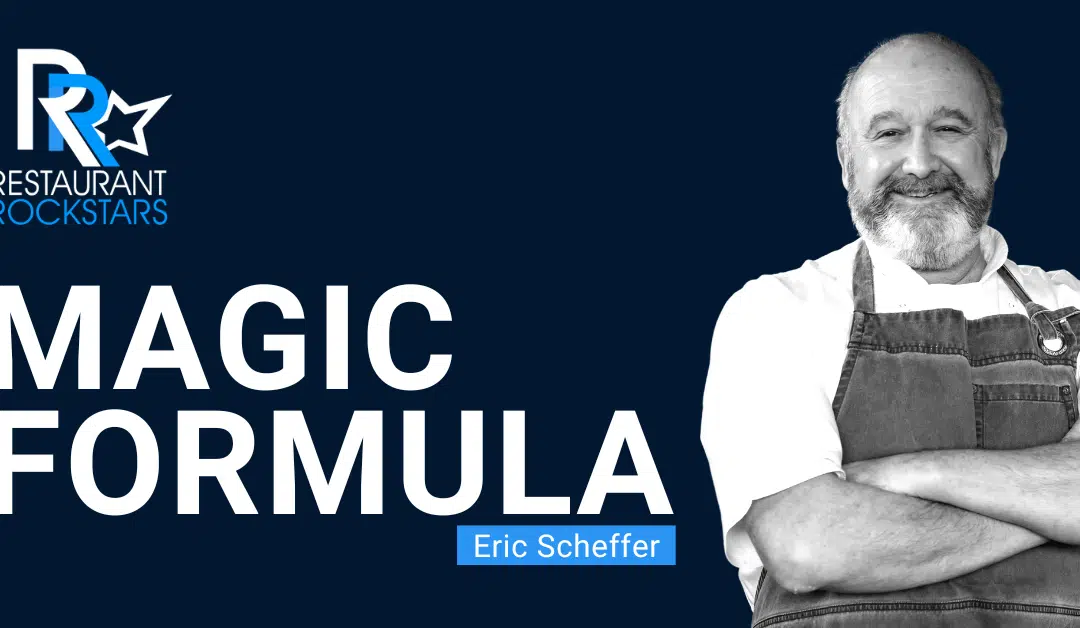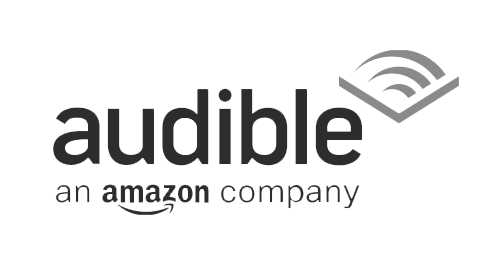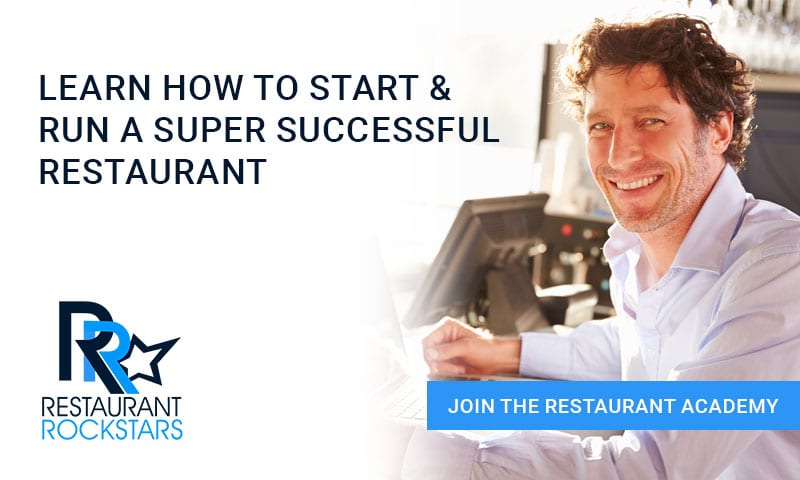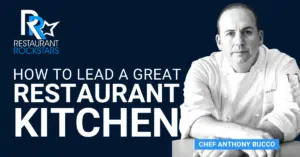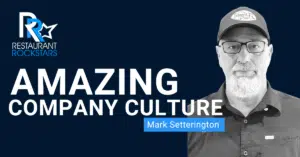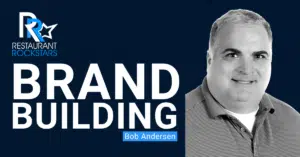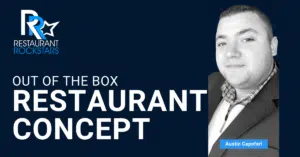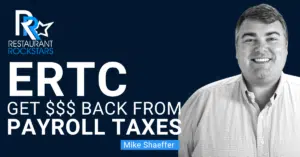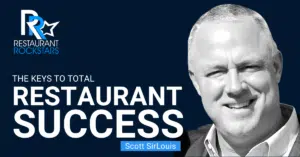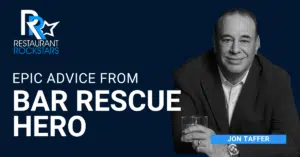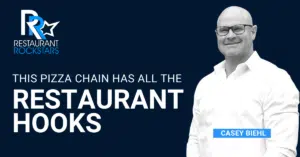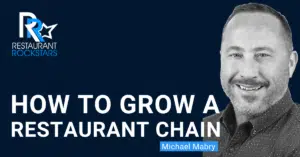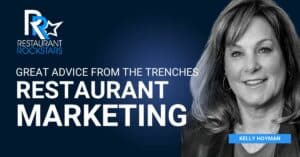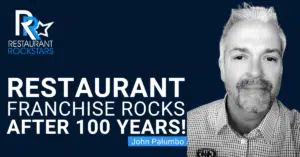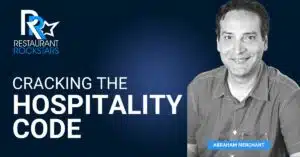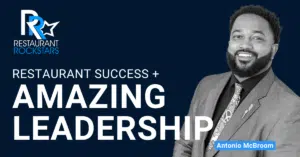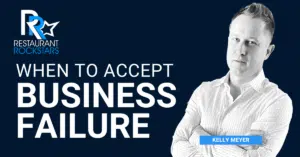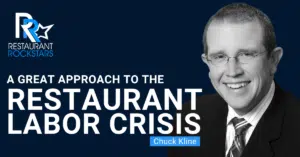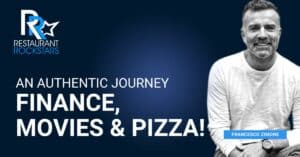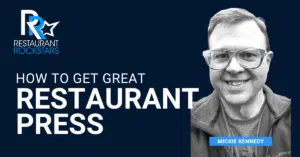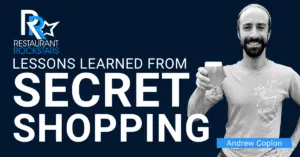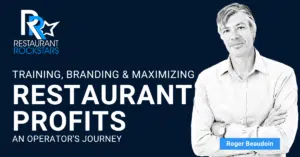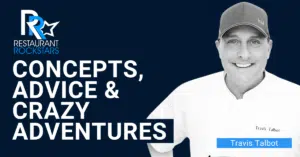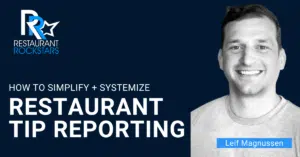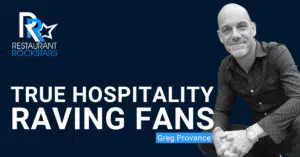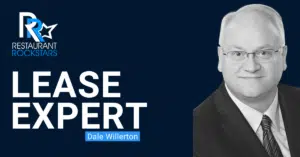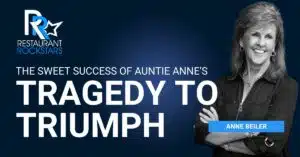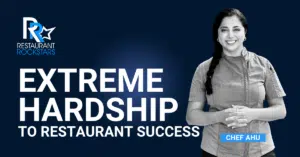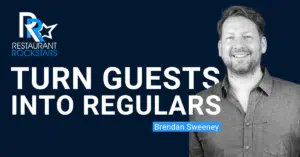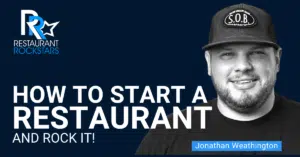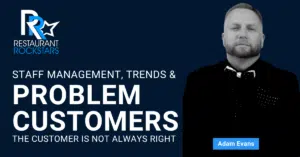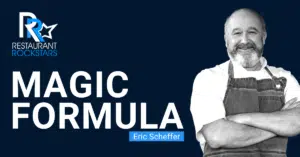Restaurant Rockstars Episode 301
The Magic Restaurant Formula with Eric Sheffer
LISTEN HERE OR ON YOUR FAVORITE PODCAST PLAYER
Prefer to watch the interview?
Click the video below.
A 20+ year run in this business holds hard-won experience and many stories!
In this episode of the Restaurant Rockstars Podcast, I’m speaking with Eric Scheffer of www.thescheffergroup.com. Eric is a true industry leader, visionary, and builder of five dynamic concepts in Asheville, NC.
Listen as Eric shares with us:
- The “secret sauce” of a truly great restaurant and what it takes to get there
- Where restaurants are falling short in running their business
- The importance of “Culture” and its impact on the team and hospitality
- Leadership style versus management style
- The how-to of building a “Brand”, not running a restaurant
- Why 100 employees stay loyal and their long tenure to his brands
And we discuss the labor crisis, today’s challenges, and Eric’s best advice to operators moving forward.
Don’t miss this episode, then go out there and Rock YOUR Restaurant!
Connect with our guests
Guest 0:00
We all have a choice to walk through that front door and say I’m going to spend my money here. Look at that person with a sense of gratitude because they’ve chosen us number one, right? And now let’s deliver an experience that’s based on that sense of gratitude that’s coming from with inside of yourself. Be there to engage from a place of gratitude and thankfulness. You can change somebody’s day, you can change somebody’s life by a smile and your interaction that you have with them over food.
Roger Beaudoin 0:27
Welcome back, everyone, and thanks for being with us. Today I’m speaking with a very dynamic operator of five very distinct Dynamic Concepts in Asheville, North Carolina, we’re going to talk all about the secret sauce and the magic dust of running great restaurants, you’re not going to want to miss it. And if you haven’t done so already, head on over to restaurant rockstars.com forward slash profits. I’m giving away three ways you’re killing your restaurant profits, immediately actionable information that will improve your bottom line. Now on with the episode.
Intro/Exit 1:00
You’re tuned in to the restaurant rockstars podcast powerful ideas to rock your restaurant, here’s your host Roger Beaudoin.
Sponsor 1:16
Imagine both your front and back of house teams are so well trained that they’re executing flawlessly. Your front of house is doubling your sales, boosting repeat business and creating five star dining experiences. While your back of house is consistently preparing each dish to perfection on time and to spec having a restaurant this dial takes a unique training system. That’s where serve comes in. Serve means study restaurant variety, and it is a powerful mobile training system custom built to meet the needs of your restaurant serve will uplevel your team’s knowledge and skills, maximize your profits and create experiences that guests will rave about serve is the key to unlocking your restaurants hidden potential, and will prove that the more your team is able to learn the more your restaurant will earn it and it’s a game changer. Ready to get started? SRVnow.com.
Roger Beaudoin 2:14
Not answering your phone is one of the quickest ways for your restaurant to lose a potential customer. But between serving n customers and dealing with the kitchen. It’s hard for staff to prioritize incoming calls. That’s why your restaurant needs popmenu answering simple questions that keep your phone line tied up can be handled without pulling a staff person from your in person hospitality. Reclaim the power of your phone. Popmenu answering is powered by artificial intelligence to answer the simple questions most people call in with like do you have outdoor seating or what are your hours within the pop menu platform you can customize answers for your restaurant and choose the voice your guests here. Plus create customized greetings pop menu answering picks up your phone 24/7 365 days a year turning every phone call into an opportunity. Plus popmenus full collection of tools helps optimize your restaurants website and menu streamlines your ordering experience and assists in retargeting to enable you to build long lasting relationships with your guests. Get help answering your restaurants calls now with pop menu answering. And for a limited time my listeners can get $100 off their first month plus an unchanging monthly rate at popmenu.com/rockstars Go now to get $100 off your first month at pop menu.com/rockstars
Roger Beaudoin 3:40
Welcome back everyone to the restaurant rockstars podcast with me today Mr. Eric Scheffer of the Scheffer group a long, illustrious career, can’t wait to dive into it. Welcome to the show. Eric. How are you today?
Guest 3:53
Fine. Thank you very much. Thank you so much for having me. I appreciate it.
Roger Beaudoin 3:56
Absolutely. Well, you know, I love talking shop with operators. You’re not just an operator, you also help other operators improve their business and that’s what the Schaeffer group is all about. But before we go there, you know, I always ask my guests What is your backstory in this restaurant business in hospitality? Some people go you know, way back when they were 15 years old. Their first job was in a restaurant somewhere. Maybe they worked for McDonald’s or a country club like I did. Some people just cooked in the kitchen with mom or grandma. You know, it’s different for everyone. What’s yours? Where does it start?
Guest 4:28
Well, it all started for me, I guess my passion for cooking started with me cooking in a little Italian restaurants. on Long Island, New York. When I was about 14-15 years old. I used to get a summer job. In my father’s My father had a very close friend. His name was Vinnie, Vinnie cupola and I used to work in some of his kitchens with his son, you know, chopping garlic making sauce. And that would lead us to hang out with, you know, the old grandmother’s at the end of the day, the time and grandmothers, I also spent a lot of my time growing up on the North Shore Long Island and I was I had this sort of little business I created for myself where I would go out and I would clam, I’d get oysters, I had some lobster pots, and I used to collect all that stuff and bring them to little restaurants on the coast and Cold Spring Harbor, and sell that and my mom was really an amazing cook. So those three things combined sort of started my real passion for food and beverage, mostly, my dad was a very well known person in the advertising industry. So we got to travel a lot. So I got the in some really wonderful restaurants. So I experienced from the other side what it was like to be given what I consider a you know, exceptional hospitality or service and all that sort of stuck in my head. The interesting part was that I ended up taking a little bit of a right turn. And going into my family’s business. As I said, my dad was an advertising. So I got into the early part of my life, I was in rock and roll and TV, commercial production and eventually feature films. And so I did that for about 18 years, and I realized how I was doing something that I was good at, but I was doing something that really wasn’t filling my soul and really wasn’t connecting with who I I later found out who I really am inside. And so I chose to give up the the Hollywood Glitz lifestyle of that in Los Angeles. And actually what I would be doing is in between jobs, I would actually go off and take these little two week cooking classes like in France or Spain or, you know, Los Angeles and such and it really continued to fuel that passion I had inside of me for hospitality and for and for food.
Guest 6:55
And I met my wife, my now wife, Heidi, in Argentina on a TV commercial I was producing. And she came back to the United States after that. And well we fell in love and got married and we were both just miserable living in Los Angeles. She was an actress and me being a producer. And we looked at each other after some bad incidents that happened. She got mugged I got attempted carjack the earthquake of 94 hit in California. And it was like, you know, maybe something something’s telling us, now’s the time to make some changes in our lives. And in those days, I still am a bit of a jokester. And my nickname was Hollywood. And so I, I went to a bunch of folks that I had contracts to do some projects with and I just walked in, I said, I’m done. I’m leaving, um, I don’t know what I’m going to do. But I gotta get out of LA. And they all thought I was joking. And I was kidding around there was just like, No, this is serious. I need to I need to I need to cut this umbilical cord here that I’ve had, you know, in the industry for so many years. And we did we we had a friend of ours that called us up and said, We just and he was a chef in New York, and he said, Why don’t you come check out Asheville, North Carolina, you know, and take a break. And you know, I know all this bad stuff just happened to you. And you know, just just take some time off. And it was November of 1994. And I’m like Asheville, North Carolina. I mean, that’s in the middle of the mountains. I’m a Jew from Brooklyn. I mean, yeah. What are you talking about? I mean, it’s like, yeah, so yeah. Anyway, so we long story short, we went for Thanksgiving and we got off the airplane. And it was it was we got off the airplane. We got lost. I was driving around the car got lost. And you know, where I’m from Parkway, you know, you’ve got four lanes. And as you know, usually gas stations and sizes. Let’s get on to Parkway there and see where that leads us. We’ll find a gas station. Well, here in Asheville, in the Smoky Mountains, the Blue Ridge Parkway, it said the Blue Ridge Parkway is a two lane little road. It’s most beautiful road, I believe in the United States. But there’s nothing on it. So we got up on this road and we got lost again. And we pulled off to a an outlook. And we both got out of the car. And we looked out over these amazing, amazing mountains in this incredible view. And just there was an energy there and we both turned to each other. And we were both crying at the time. And I was like, this is where we need to spend the rest of our lives. And within a week I went back to LA. We packed everything up. We drove cross country, I had no idea what the hell I was going to do when I got here. But I knew I wanted to start a new life and that life would be in in in culinary. So we got here and the gentleman who I was talking about who invited us to come have Thanksgiving with him. He and I opened up my first restaurant together. And he was the chef and I was in front of the house and sat and I was called The Savoy who was it was one of The premier fine dining restaurants in the southeast for about 10 years, he and I didn’t make it after about the first year and a half. So I took over and I was both cheffing and running in front of the house. And so that’s kind of how I got to where I am today.
Roger Beaudoin 10:13
Wow, those are great memories, and you’ve covered so much ground there. What’s really coming through Eric is your passion for this business. Like it runs deep. There’s pride there, there’s passion there, you’re not only helping other operators, we’re gonna get into the Scheffer group. But I also want to talk about your concepts. Well, like I said, your whole story of starting this restaurant and moving on to the next one, and how much time you spend there. And what is really important in running restaurants.
Guest 10:38
So I started the subway in 2000, late 99, early 2000. And that was spectacular. It was it was a great time of experimenting, I bring some really young chefs around me that knew a lot more than I did, that we’re we’re on their edge of their careers, several of them have gone on to become James beard, James period nominees and award winners wonderful. I know it’s really great. And it was it was it was it was what I what I decided was I wanted to bring upscale dining to Asheville, North Carolina, which I saw a lot of people moving here. And again, this is back in 2000, that had a lot of money, a lot of retirees as a big retiree community. So I wanted to bring that that fine dining experience, that experience I experienced when I was traveling around the world, my parents and eating in great restaurants in New York, and so on and so forth, and bring that sort of elevated style. But at the same time, what I wanted to do and what is really at the core of the ethos of everything I do is create a culture create a culture within a restaurant, where you got to buy in from everybody, everybody from the dishwasher to the hostess to the server, a culture that was that was driven by the brand that you that I had created. And this was this, this this ultimate service, this exceptional hospitality. Being being being so grateful that people were walking in the door every single day, and exuding that and giving that an example in the way that you would serve people. Our food, we never had a freezer in the restaurant, everything was from scratch. And little mistake I made, you know, we changed the menu like once a week. That’s a big lesson I learned. You know, we tried to use what we did we use, we use local all the time, we were working with local farmers and such it was just this great, energetic fun, you know, just growing period for all of us. And we were experimenting. The one thing I learned from that, and you know, hopefully we all learn from our mistakes is fine dining is very expensive, right? It’s sure. Farm to Table is very expensive. Yeah, you know, using fresh product is very expensive. So you talk about margins that get down to like that, you know, get really tiny and small and you’re scrambling but you’re so in the heat of it. And you’re so successful, at least you think you are. And you know people are lining up and making reservations and Sony selling 400 balls, wine and such. But then you start paying attention to the numbers. And you
Roger Beaudoin 13:06
start laundry bill is right up there with your food costs, right, because linen napkins and tablecloths and every time you change a table and it’s like and that’s just one small piece of it. But I hear you keep going.
Guest 13:16
No, exactly. So you know, you start to realize that we’re having a great time there’s lines out the door. You can’t get a reservation for two, three months, but my bank accounts not grow.
Roger Beaudoin 13:27
restaurant owners and managers. I call this the business of 1000 details. And you’ve got more important things to worry about than calculating and paying your monthly sales tax on time. Well, that’s where Davo comes in. Davo puts sales tax on autopilot for restaurants. devil uses sales tax data from your point of sale system to set aside the exact amount of sales tax you collect every single day, and then files it and pays it when it’s due on time for your restaurant every month. Davo takes just five minutes to setup. And once it’s up and running, you never have to worry about paying sales tax again. Davo costs 49.99 per POS connection per month, and your restaurant can try Davo for the first 30 days free devil was created by a successful restaurant chef and owner who knows what’s important for your operation. Time is money and you’ve got more important things to focus on, like pleasing your guests. You can’t put a price on peace of mind when I tried Davo for the first 30 days at Devosalestax.com.
Guest 14:29
Right? So I had a very good sort of business background, being a film producer, you know, being a TV commercial producer and such, you know, you’re taught to work with budgets. So I went back to some basics and I went back to Okay, really drilling down on the numbers really drilling down on the budget and realizing that I was losing my ass. You know, truthfully and I won’t complain because what it did is it kind of put me on the map, the restaurant itself and the concept and the press and so on and so forth. We Getting so, you know, to make myself feel better, I guess I looked at it as being okay, you’re paying for, you know, laying the pathway for your future in some way, you know, but by by getting this attention by getting this, this, you know, the awards you were getting, I was getting a Wine Spectator awards, and I was nominated for James Beard award twice now stick I love it, you know, again, the bank account wasn’t building. And then as would happen, the universe came up and smacked all of us in the head. And in 2008 and nine, we started doing that crash, the economic crash. And we were losing money hand over fist and you know, people were pulling back or no on their spending, they were losing their fortunes, you know, people weren’t, you know, looking for fine dining anymore. And I knew that I had two choices. One is get out of the restaurant business, which I did not want to do, or reinvent myself. And at the time, also, I was I was very involved in a lot of community stuff here in Asheville, so and it was easy because it was a small town when I moved here about 72,000 people. And I was on a lot of boards, and I was on the Tourism Board and such and I got to see what the shift and such was going on within the communities. I thought it was very important for me to engage myself in the community. So I understood who I was reading what I was, you know, the type of, you know, Pocket Books I was looking at, you know, what these people, you know, tourism was bringing to town and such. And what I realized was, there was a tremendous amount of people again, leaving and retiring from New York and Connecticut, New Jersey and, and Boston and coming up from Florida and finding this little gem that we have here in the mountains, great climate, you know, really, very just a beautiful place to live. And they were all starting to feel in Asheville. Well, I said to myself, I wanted to stay in the restaurant business. But what can I do right now to keep myself alive? And to bring something that would be new and fresh and exciting? Well, I said, what do people need right now they need to be comforted. They need to be they need to feel like they there’s a place of familiarity for them. And if I can evoke some memory within these folks, that that sort of takes the outside world away and brings some joy into their hearts. I’d probably be successful at that. And that’s when I went back to my roots of all these Old School New York Italian restaurants that that Long Island and New Jersey and all these places and such like that. And I said, I’m going to open up a place like I used to work in I’m going to open up a place like you know Damianos pizza up the corner. I’m gonna open up this great little family run Old School New York Italian restaurant, you know, with red sauce and linguini and clams and eggplant parm and, and you know, pizzas and such Sinatra playing in the background? Sinatra playing, you know, the martinis, being shaken at the bar. Yes. Beautiful. And I got really excuse my French fucking lucky and it worked.
Roger Beaudoin 17:50
Okay, fantastic. And
Guest 17:53
it was the best thing I ever did for several reasons. One is, it grounded me. It brought me back to reality in many ways. It helped me use the business skills, I had to really hone in and developing a menu and working with my team and such on food costs and labor costs and margins and such, to where I will tell you that, you know, and somebody said this to me many years ago, it’s a great thing. You know, if you feed the classes, the elite with the masses, if you feed the masses, the elite with the classes, and it came true, you know, I started making more money and was more profitable than I’ve ever been. And it just started to snowball. Now in our 11th, year Vinnies is been voted the number one Italian restaurant for 11 years here in Nashville. We win all sorts of awards, but the word I’m most proud of that we win every single year is for best service. Now, and you know, we have restaurants in town again with James Beard award winning chefs and restaurants and you know, Kura Tay and, and Bullen, beggar and such, and we blow them away when it comes to the, you know, the local voting that takes place here. And actually today, every single one of my restaurants is one, two and three on TripAdvisor, here in Nashville. And I believe it’s because going back to what we said before, is creating, creating a brand that has a well defined culture, and then inculcating that culture into your staff so that staff can now put their arms around a guest and have fun with that culture and inculcate themselves into the daily lives of our guests. And that’s how it really worked for me.
Roger Beaudoin 19:37
Therein lies that magic word, hospitality, hospitality, when everyone that interacts with the guests really understands what that word means. And it has different meanings to different people. But the core of it I think you brought clear, and it really does start with culture. And like you said, really indoctrinating every person into what we stand for and what we hope to achieve and what our mission is. And every single day, it’s like reinforcing those concepts through best practices, leadership versus management, all these things play into hospitality, I’m sure you’d agree.
Guest 20:09
Well, no, I absolutely agree. You know, and one of the, one of the other core values that we bring to the table without without staff is gratitude. You know, we are some of the luckiest people on the planet to be able to aid live in Asheville, North Carolina, but to be able to be a service of others. And to be able to bring an experience to somebody that chooses, everybody’s got a choice in life, right? White, Black, rich, poor, doesn’t matter. We all have a choice to walk through that front door and say, I’m going to spend my money here. That’s right, well, look at that person with a sense of gratitude, because they’ve chosen us number one, right. And now let’s deliver an experience that’s based on that sense of gratitude that’s coming from with inside of yourself. Because you don’t know if that person had just walked through the door, just lost their mom yesterday, got married last week, or had a baby or whatever it might be, be there to engage from a place of gratitude and thankfulness and try to your best you can and I say this every day, when I go to lineups at my restaurants, you can change somebody’s day, you can change somebody’s life, by a smile and your interaction that you have with them over food. And it’s it’s one of the most magical things. And to me, I’m still young, I’m 62 years old, but it keeps me getting up every single morning, and just bouncing out of bed with such joy and excitement to do what I do. Because we get to do that with people, we get to interact with people. And to me, that’s there’s no greater gift.
Roger Beaudoin 21:39
I call it making friends with your guests every shift every day, and giving them reasons to continue to come back and giving them reasons to spread the word and give you positive reviews. And clearly that’s happening in your restaurants for sure.
Guest 21:53
You probably know a well known ad man, his name is Seth Godin, and Seth Godin is building, you know, your fans, right? Right. I don’t advertise, I you know, a guy coming out of the advertising business, I got into the restaurant business, and I decided not to advertise, I wasn’t gonna take magazine ads or paper ads or any of this crap, I believe the best thing to do is to advertise from within, I want you to have a great experience, and go out there and tell 10 of your friends. That, to me is the best way that anybody because it’s the most honest way of advertising and communicating with somebody.
Roger Beaudoin 22:26
I couldn’t agree with you more. And that was definitely one of my guiding philosophies. When I was starting my restaurants. I didn’t believe in spending lots of money that so many restaurants do on advertising that really isn’t trackable, where it’s image based, I mean, you and I understand that the tenets of advertising and consistency and repetition. And so many operators go down that slippery slope of a slick advertising person, whether that be radio or whatever it is calling them up and convincing them to do something. And unless you can track that, you have no idea if it’s even giving you a return on investment. And you’re right, it’s like what’s free, it’s like training your staff to deliver memorable experiences and using the internal four walls of your business to promote what you do and what you do well, and let your products and your service and your ambiance speak for you. And that is the best form. I totally agree with you, thanks for sharing that. Yeah, wanted that to come through.
Guest 23:16
You’re right, there’s no ROI on on, on on putting an ad in a magazine that somebody takes a you know, a second and a half to go pass as the turning the magazine, the best return on your investment is investing in the people that work for you. And you know, and and really, you know, I do and after the Schaeffler group, we have a brand manager, you know, and so that person is over our, our messaging and our stories, and you know, our websites and our social media and such but it’s, that’s important, it’s important to really clearly define the story, if you will, for the guests and for the for the public, but to to waste your time trying to get somebody to come through the door just with a magazine ad, it’s not gonna it’s not going to do it. And right now, I found, you know, I’ll take a half step back, but when I hire people, most important thing I do is is I’m a very big Danny Meyer fan. Setting the table is a guideline in my business for my management staff reads the book, we go through chapters together, we look very important and yet one of his chapters is the 51 percenters, right? Those people that you know really exhibit certain qualities, you know, self awareness and optimism and integrity and empathy and you know, and when we interview we interview based on that basis, but when I hire people, what I do is I also talk to them about the fact that I don’t care if you stay here for a month or if you stay here with me for 10 years. I want you to first become a better person, by what you’re doing here by your interaction with people by your interaction with your with your coworker, how you how you lift others up within the building when they’re not having good days, how you how you pick up somebody section a little bit more to help them out. Because becoming better people and I don’t expect these people to work for me for the rest of our lives. What it does for me is it gives me that satisfaction and really warms me to know that they’ll go out into the world and be better people to that’s my responsibility because as you know, owning restaurants, how many hundreds of people work for us? I mean, currently, I’ve had, you know, 136 people working for me, and I’ve been doing this for 22 years. So, you know, do the math, it’s, it’s, it’s, it’s, there’s a lot of people and I want people that come through my world, not just to be looking at, you know, how much tip Am I getting? And, you know, you know, where am I gonna go, you know, party tonight, I want people to grow and to become really, you know, better people, as I said, just from being within my world.
Roger Beaudoin 25:46
Well, this is one business where you don’t need a formal education to rise to the absolute top of the industry, what we teach and what people learn in restaurants every day, our life skills and people skills, right? To have those foundational critical elements of being successful in any career. So a lot of people start out in the restaurant industry, and go on to do other amazing things. But I think you’re touching on something, it’s it’s about longevity and building a place where people feel they’re part of something they can contribute and giving them opportunities to grow and move up in an organization. And it sounds like you’re doing that I understand that you’ve got very high tenure with your staff, you’ve got 136 plus employees, and a lot of them have been with you a very long time. And I think that speaks volumes of what your leadership style is. Tell us about that.
Guest 26:31
Sure. Well, you know, as an example, and I want to go back to the education thing for all those that are listening. I am a high school dropout. I did. I didn’t drop out. I just barely made it over the finish line. So you know, it. College is great for some, but you know, it’s not for everybody. Not really to be Yep, exactly. But so starting back in the Savoy days, I had a woman that I brought in to help me when we were getting very busy with the books and her name was Renee Hermanson and Renee quickly, we just became family with each other and she quickly moved up to become the manager of the Savoy went on to help me open up venues closed Savoy open up Vinnie, she had a baby came back into my world as my bookkeeper, actually, and she’s now the CFO of my other Schaeffer group, and runs all my businesses within for me, and she’s been one of the for 17 years. My director of operations, Sean Cudmore, has been with me for eight years. And he started out as a as a runner, and then became a server and moved his way up in the organization, Dean boscovich, who’s my culinary director has been moved me for eight years. And he started as a dishwasher, and moved his way up to be a chef in one of my restaurants, and then come with me, and Nate welling, who’s the head of development and training for my restaurants. He’s been with me for seven and a half years. And he started out as a server and Vinnies. And I can go on and on and on, I’ve got a core of probably out of the 136, I’d say there’s a good, probably 15 People that have been with me for five years or more, and most of them like, eight, nine or 10 years. And I think it’s, you know, I love these people. I mean, you know, without them, I couldn’t, I couldn’t feed my family, I couldn’t, I couldn’t take care of my daughter. And, you know, I treat them like family, I go beyond just hey, come on in and make some money for me. You know, I want to know about their lives, I want to know about their families, I want to you know, I, I do this funny thing. And they all laugh at me, but I will often see me out in the parking lot. And I walk around and look at people’s cars. And somebody said to me one day, Eric, why are you doing that I said, because I’m looking at people’s tires. And those people that need tires, I’m gonna put new tires on their cars, because I want to make sure they’re safe going back and forth from my place and their lifestyles. And so that’s what I would do, because I just go buy people, new tires, and such. And it just became this thing to where, you know, it’s grown into our, you know, we offer a wonderful health care and insurance program for full time employees. We have a health care program for part time employees. And one of the most important things also is that we offer a mental health program, which is a big thing in today’s unfortunately, society and community that was too long, put underneath the rug, but going back to what you’re talking about longevity, if you treat people, right, and if you respect people, and if you and if you keep everybody the best you can on an even playing field, you don’t put somebody above somebody else, and you listen and you allow people to give you feedback. I’m not that guy. Yeah, I’m a strong headed, you know, New York guy, and you know, I’ve got my opinions and so on and so forth. But I’m happy to listen to anybody’s opinion. I may not always do it, but I want to hear it. I want to hear how you can make my world better. And when you allow that to happen and you allow people to, to to really not just be a cog in the wheel and to really express themselves and again, go back back to being human beings and that interconnection we can have it changes everything
Roger Beaudoin 30:05
restaurateurs and managers. Everyday guests are asking your servers one simple question that can make or break your bottom line. That question, what do you recommend? Studies show that 92% of diners will order whatever their service suggests. So if you’re not already doing everything you can to harness the influence of your frontline team. It’s time to start. I’m excited to introduce you to sparkplug in all in one customizable incentive management platform designed for restaurants, sparkplug fully automates sales contests goals Commission’s letting you build incentives, track real time metrics and fulfill prizes in one dashboard. Over 1000. Businesses are using sparkplug to motivate and engage their front of house to ensure they always have the perfect answer. When asked what do you recommend now you can to sparkplug is free to try and is offering my podcast listeners $200 off their first sales incentive, visit sparkplug.app/rockstars to claim your $200. That’s sparkplug.app/rockstars.
Roger Beaudoin 31:13
Eric, what you’re talking about is so critical right now and so pivotal to operations in any restaurant. Because pre pandemic, when there weren’t any labor crisis issues, and business was strong and restaurants were kind of cruising along. There were an awful lot of managers out there that delegated and I’m big on this now because anybody can delegate and tell somebody what to do. And it’s a rare person who’s a leader that empowers people, and really gives them room to fail and nurtures and develops them and mentors them and brings them up in an organization and recognizes and rewards their achievement as they grow. That’s how you’re gonna keep people happy in an organization. And that is so important right now. And it sounds to me and what you just said that you are a mentor among mentors, you’ve got management or leadership team underneath you that share the same philosophies, it all trickles down, and you’re touching your people in a personal way in making them feel like you care, and that they matter and that they have opportunity in your organization. I think that’s really rare. It is
Guest 32:15
everybody in my organization, and I tell this to everybody, from the dishwashers on up, you can move up anywhere in this company you want, you could you could come sit next to me and my office if you want, you know, do the work and you know, show me your desire, and I’ll teach you. Right, right. And you’re right. I mean, there’s a big difference. And I hope your audience understands this is a big difference between delegating and leadership. There’s a huge difference area, you can do too many people delegate and they walk away, you know, delegation without good leadership and mentorship is is, you know, it falls apart. So, you know, you still have to have in some way, you know, and we talked about this all the time, you know, what, what are we doing to, to, to train and to and to encourage and to integrate people into positions that we need, especially since the the labor situation is the way it is I mean, you know, think about the amount of money you take, you know, talk about the business side of this, and I’ve done the calculations, how much money is it take me to train you how much money is it take me to get you on the floor, you know, and teach you to be a really good server, it’s 1000s upon 1000s of dollars and hours. And if you lose that one day, because somebody gets pissed off, because they don’t feel like they’re being paid attention to, or they’re not being, you know, respected or appreciated. You just had money walk out that door. And I look at it that way. I mean, I drill down to the Nicklaus, and the amount of money you lose, not retaining employees is enormous. Yes, it’s enormous. And a lot of people don’t get that. It’s like, okay, I’m just gonna fire that person. Let’s go hire somebody else. No, actually. Yeah, and I do a lot of exit interviews when I can but find out why that person wants to leave first. You know, what is it about you? I look at, quite frankly, my wife always last week, but I come home all the time, saying, you know, I failed today. She was What do you mean, you failed, you got three restaurants, you got a catering business, you didn’t know that guy quit. I don’t know why he quit. I didn’t get a chance to touch him. I didn’t get a chance to understand what was going on for him in his life. And that those to me are failures. You know what? I don’t know. Look, I know I’m not going to keep everybody but if I don’t get the opportunity, at least to touch you. Cray. Hello, my teammate touch you say, what are we doing right or wrong for you right now? How can I make this better for you? And at least give me that chance? Not necessarily. Sure. That’s a That’s a beautiful, missed opportunity in my mind’s eye. You know, and you asked a question earlier, and I’ll tell you, I do my best to go to every single one of my restaurants every single day. I do my best to work at night on the floor in those restaurants at least once or twice a week and I try to pick like one restaurant this week when the restaurant is Heart, you know, as you grow, you lose that. And that’s why it’s so valuable I have the people around me that if you will have been drinking my kool aid for a long time, that can walk in and know exactly how I’m thinking and how I want something run and done. So I had that comfort, because we are growing, we’ve got some more venues, you know, that we’re launching in over the next two years, and, you know, some of the things we’re working on, but it’s, it’s, it’s, if you’re going to be a small little mom and pop restaurant, and that’s it, that’s cool. I mean, I get that, you know, on some level, that’s, that’s kind of like, you know, Nirvana, if you can make that work for yourself. I’m just a serial entrepreneur that keeps on wanting to grow and build and while doing it, you know, help others find their space in life, you know, and find their, their, their passions in life.
Roger Beaudoin 35:53
You know, you, you strike me as well, you’re a big personality one. And, you know, hospitality is at the core of that personality, but you must have so many friends in Asheville, and no matter which restaurant in that area you’re in, people must be stopping you constantly, because you are the personality behind your business. And I get the sense also, that you have developed your leadership team below you to also be those personalities to recognize those great guests, but not just treat your regulars that way. It sounds like you treat anyone walking through the door, whether they’re a first time visitor you treat everyone like an old friend or that they are a regular, you know that I get that sense. It’s just coming across very strong.
Guest 36:32
I appreciate it. And you’re right. You know, I, first of all, I love people. I really do. And you know, my wife always gives me crap because we go out to dinner and No, we cannot have a dinner without, you know, people coming. Oh, you’re the mayor of Asheville. Exactly. Well, they call me The Godfather America, there
Roger Beaudoin 36:50
you go even better.
Guest 36:51
But, you know, human interaction is so important for me. And I really get joy out of out of out of meeting people getting to know people, making people feel welcome. It’s a you know, it’s a very hard skill that I’ve really mastered. And I’ll give you a little secret and put it out there in the air. But because I’ve been doing this for 22 years, and I’ve met so many people that I could be in one of my restaurants and somebody will come up to me that I know I’ve met, but I can’t remember their frickin names and
Roger Beaudoin 37:24
but happens all the time. I know you meet so many people and and it’s easy to remember your name. And everyone knows Eric. But it’s like when you meet 1000s of people constantly. And some of them come back and some of them don’t and you recognize the face, but it’s so awkward sometimes not to say Hey, John. Hey, Bob. Hey, David. Great to see you again. That was one of my biggest problems. My memory was for faces, not for names. And it’s embarrassing sometimes. And you pretend like I know who they are. You do know who they are. But, you know,
Guest 37:54
I was gonna say it’s about humanity. It’s about that connection with other people. There’s a there’s a wonderful, wonderful chef, his name is Pierre Tam, who owns a restaurant in New York called Topanga. look him up. He’s amazing. You should if you ever get him on your podcast would be brilliant. But he did a podcast with Lynn Rosetta Casper, who does the splendid table on NPR. Okay, sure, on the chewy tire. And I’ll never forget, I listened to the podcast that she did with him. And it was in my early part of my career, and it just all clicked. And he talks about Tango, which is it’s a value it’s it’s a value of hospitality and how you treat others and in Senegal, and it’s about inviting others into your home, to sit around the bowl and Senegal and most African community, you know, countries they eat around a bowl, and
Roger Beaudoin 38:47
I’ve seen that I know what you’re talking about. And in ritual, really eating is a ritual. And it’s an it’s a cultural, deeply embedded cultural thing, historically. But it also is what brings people and family together as well. I mean, foods is a universal language. But in Senegal, this is the this is the tradition. This is the ritual. Yeah.
Guest 39:08
And it’s about bringing the what he calls the other which I like to determine the other into your, into your, into your home, to sit around your bowl, whether you know them or not, and, and the the value of giving to the other and the value of sharing with the other. And the value of providing for the other, as he would say, is the most essential thing of their culture and again, their values. And that’s how and when I heard that it changed my life when it came to the restaurant business and I realized now I really can put it all together why I’m really doing this because it’s the value of the other not of myself. It’s what I want to give to the other end to those people that I want to bring into my restaurants to sit around my bowl, the thought of the bowl as they come into the restaurant, and give to them and share with them not knowing Who they are, whether I’ve ever met them before or what their lives are about. That, to me became the essence of, for me at least delivering as Danny Meyer’s would say, exceptional hospitality
Roger Beaudoin 40:12
for sure. I got that sense. Wow. Yeah. Wow, that is awesome. What a great relevance that was to share that particular story because it really cuts to the core of what we’re all trying to do everyday. And what we should all be thinking about, with each and every guest every table every time. I totally love that. The bowl, I mean, it’s so simple, yet it’s so deeply rooted in what we’re talking about. And it’s the same every culture is the same. And you can take pieces and cues from different cultures around the world and apply them to your business and just stand apart from the competition in a way that’s marketing as well as hospitality.
Guest 40:48
Well, yes. I mean, I look at the marketing as being a byproduct of the hospitality, right. But yeah, very much. So you know, it. The other thing I try to work on very hard, and it’s very difficult these days, especially with the way a lot of people are struggling. But I really try to remind the people at work for me that it’s not about the money. It’s not about the stuff. It’s not about how much you have, it’s the joy you get out of living every single day. And I don’t care if you’re rich or poor, you can find that place of joy. And every single day, you get to start over again, right, you go to sleep, new day, brand new sheds, leave the other stuff behind you. And you can start over again in this joyous place. And and if you if you can make money, the byproduct of what you do, it’s very hard. It takes time. But if you make it the byproduct of your actions, and the byproduct of your heart, and the byproduct of how you touch other people and the byproduct of service, you’ll make a lot of money. And I have servers today that come up to me and say, Eric, you know, because I do a monthly sort of, you know, rah, rah, meeting with all my restaurants. And I talk about this stuff. And so many servers come up to me and said, Eric, when I stopped looking at how much I was making in tips, I started making more money, because I was able to concentrate more on myself, and the service I was delivering to others. And it works every single time, every time. Now, Phil,
Roger Beaudoin 42:14
thanks for sharing let’s let’s dive into the Scheffer group and what you do because your knowledge base is so deep, and all the things you’ve learned over your 20 plus year career, and you can transfer that knowledge that experience that approach to a business in so many different areas. Do you do you specialize in any one area? Are you pretty broad based with your team in the restaurants you work with?
Guest 42:39
What I specialize in is healthy, healthy restaurant operations. We I say we, me and Renee and our, our Rene and I, over the years have created what I call the secret sauce of of hospitality economics. And it is very specific, you know, economics is economics. And you know, I’ve met hundreds of accountants that don’t get it. And I have one great CPA who actually gets it. And he’s actually a CPA for law restaurants. But the economics in the heart of hospitality is so different than how any other businesses run. And we’ve really, really narrowed that down and narrowed it down not only from a tax structure perspective, because I was having this conversation just the other day with somebody, I do everything above the board, I will not, you know, slide cash under, you know, we’re very by the books. I mean, you don’t want those nasty people at the IRS and you know, knocking on your door and back
Roger Beaudoin 43:39
to buy in 10 years down the road. Here. Yeah, it’s not
Guest 43:43
worth it, it’s absolutely not worth it. And so, you know, we have figured out a way to, to really look at how to monetize the whatever your concept is, you know, but we break it down starting at, you know, I always ask a question, it’s very funny when I when I have potential clients, and I ask them, Why are you doing what you do? I want to know that first, before we talk about anything else, tell me why you’re doing what you’re doing. And I would tell you that 60% of the people I talked to I don’t take on as a client, because they don’t answer it. Right. And it’s usually it’s, it’s ego driven. It’s not it’s not driven, you know, they’re trying to drive their businesses from their ego as opposed to driving a first looking at as a business and be as we’ve talked about, you know, how are you serving the community and the others and the people that work for you? And does your concept really work? I mean, we break down the concept we break down its branding we take we break down the story and its messaging, you know, we looked at locations and such so we really dive into all of that. But my first question I always ask somebody is why you’re doing this, and most people have no idea whether frickin want to go in the restaurant business and I always tell them, save your money, you’re gonna fail, you’re gonna you will, you will lose your fortune, whatever that might be.
Roger Beaudoin 44:59
Right? Right. We’ve formed it all before and the statistics are still there. Of course.
Guest 45:05
Absolutely. You know, when we people thought I was out of my mind. But when I opened up Jenny Ray’s Oyster House, which is my higher end Oyster House, seafood restaurant here in Nashville, we opened it on July 20 2020, right in the middle of COVID. And people thought I was out of my frickin mind. Well, probably, I probably, but I had no choice because we were heading in that direction. No
Roger Beaudoin 45:28
turning back at that point is that there was
Guest 45:31
no turning back at that point. Yeah. So we and I have these brilliant people that work for me. And with me, that had sat around tables late at night and said, How are we going to make this work? We have to make it work. And what we did was actually with Jenny raise, which has now become, again, it’s Ash was number one, you know, upscale restaurant in Nashville. We opened up as a counter service restaurant, as you know, more coastal seafood. You know, like the concept of the restaurant. For me, Jerry Reyes was about coastal seafood, everything from Maine, down to New Orleans, like I told you, I grew up on the coast of Long Island, I used to work in clam shacks, you know, in the summertime and stuff like that. So I wanted to bring that back and bring that to folks here in Nashville. And so the concept was, was pretty cool. We’ve never had something like that before. But how do we feed these people? So, you know, we did the thing with big tents outside, we had a lawn area, we had a patio, so we just, and we didn’t let anybody inside. We was counter service, you came up, you ordered, you sat down. But we didn’t stop delivering exceptional hospitality. We still gave great service. So when COVID ended, and we were able to open the doors for full service, we were ready to take that next jump up into that, that more refined dining experience. And it’s worked for us. It’s really worked. But going back to your earlier question, I teach people this, it’s like, you know, you know, I got a great story for you. But there was a guy in Richmond, Virginia. I knew his father very well. His father dumped a million dollars into his business, and it was failing, and they bought the building and it was not going well. I said, What did you send him? He says he makes barbecue. I said, Okay, let’s go to Richmond and check it out. So I went with actually Rene, we went with me. And we got there and it was this place. I don’t think it’s in business anymore. It’s called grandpa Eddie’s and it was a barbecue restaurant. So I went inside, and I looked around a little bit and he served me some barbecue, and it was literally some of the best barbecue I’ve ever had in my life. It was amazing. I mean, it was mind blowingly amazing. And it was it was a sit down restaurant, you know, servers, so on and so forth. So I said, Give me the menu. So he brought over the menu to me and on the menu word salads, and some wraps. A couple of things there for vegetarians. I think there’s some chicken wings and stuff like that. And I took a Sharpie, so give me a Sharpie. And I crossed everything out. Except the barbecue. I said you’re a barbecue restaurant. Yes. Yes. I said, stop trying to please everybody else. He says, but what if somebody comes in and their wives are vegetarian? Or what if somebody comes in you know, and you’re a vegan? And again, she’s my French. I don’t know if I can be. Go ahead. I said, Fuck the vegetarians. In fact, the vegans your barbecue restaurant, do what you do best. And we tore apart the menu and we went down to just straight up barbecue. I said, Why do you have all the servers here? I said, let people come up and have a counter experience, which is very traditional. We’re on come from North Carolina, and have runners and take the food to the table. So he changed his complete model and became a huge success. Actually, I think he sold his restaurant is now working corporate for Carabas. But yeah, it was awesome. It was one of those things of like, first of all, under no your brand. Be specific, don’t care about every you’re not going to feed the entire planet with one restaurant, you know, do what you really do best. And the other thing you always say to me in a very interesting, it’s very funny, because servers would say this to me all the time when a new Italian restaurant would open up in town, they would say, Eric, what about that? You know, what do you think about you know, G and camo was or whatever those are opening up in town, I said, I don’t care at the Open up 100. Again, restaurants, I don’t care. As long as we do what we do really well. And we focus on ourselves and don’t give our energy off to somebody else and worry about what somebody else’s problems are. We’re going to be successful. And that’s the other thing is that people take the eye off the ball, right? They get comfortable. They don’t show up. You know, one of the things that Renee says to me, because she works with a lot of other restaurant clients, she got an accounting firm. She goes Eric, you’re the only restaurant owner I know that shows up every day. You’re the only guy that actually walks in his restaurant every single day and touches everybody I hug people. You know, it’s losing that connection and your identity that really starts to rip you apart and take you apart. So at the Schaeffer group, what we try to do is bring you in, we try to teach you first from a humanistic perspective of who you are as a person can You really handle this business? Or should you really be in this business. And if you really want to do that, and be in this business, here are the tenants and the things that really need to be in place in order to be successful in the restaurant business, and we take it everything from I help people brand all the way down to, you know, finding real estate locations and everything in between.
Roger Beaudoin 50:18
That’s fantastic. How do people find you?
Guest 50:21
You know, it’s been it’s been word of mouth. You know, we just finally got a website up chef or group.com. But it’s mostly been word of mouth. And we’re starting to expand, we’ve got three clients. Now we’re working with that, that have found us we only started the Schaeffler group in January. They’re very large clients, and it’s, you know, it’s a joy for me, because if I can help if I can take all of my experience and all the times I got, you know, kicked in, you know, between the legs, and turn that into positive situations for other people, then then it’s, I’m so gifted to be able to to have those opportunities. I really am.
Roger Beaudoin 51:03
Eric, you shared so much with our audience a lot of key nuggets about operational wisdom, that’s hard earned wisdom, just smart, common sense. But the real core elements of what makes this business work. And, you know, we talked a lot about brand building versus running a restaurant, we talked a lot about the importance of leadership and mentoring people and just how we wanted to treat every single guest. We’ve talked, we started this conversation by saying people have been really beaten up badly. And now it’s about rediscovering the reason? Well, your first question is, why do you want to be in this business? What’s your best advice to operators who have been in this business, and they’re still standing? And they they sort of see a light at the end of the tunnel, but it’s like, God, another day of this, you know, how do I get through this day, this one just quit. And I need a new chef. And you know, all the nightmares that are happening right now to restaurants, rising costs, I can’t get product anymore, because of supply chain issues. I gotta raise prices on my customers. It’s like, I gotta keep my guests happy, all this stuff. I mean, you know, we’re talking shop now, what would your best advice be just to keep on going and get to that magical place? Have? I really love my restaurants like you do. And I’m really happy that I saw the course and I stuck it through.
Guest 52:12
I wish it was a one word answer there isn’t. I mean, I think being humble, helps a lot. Being honest with yourself helps a lot. You know, don’t, don’t lie to yourself, if it’s not working, it’s not working. Don’t try to push something to a place, it may never go or may never be able to go. Be transparent with yourself and the people that work with you. Be honest, be transparent. I’m very honest and transparent with my numbers and everything with everybody that works for me. And then maybe just take a deep breath and take a step back. And you know, ask that question Is this what I want to be doing for the next 10 years of my life, and if it is, is a reason why they call it work. You know, I’m the 530 in the morning guy, and I go to bed late at night, and I sit and every challenge that comes to me, I absolutely know in my heart I can overcome. That’s the thing that’s gotten me through these really hard times, it’s always going to be okay, I really believe that I really believe for good people in this universe. And on this planet. If you if you do the right things, and you really and I don’t mean to be sounding so esoteric about it. But if you really take the time and sit down and no, it’s going to be okay and analyze the numbers and look at the people you have around you. And you may have to shift your model, you may have to shift from your table service to counter service, you may have to change your menu. But now’s the time to do it. Because you are right. Inflation, rising costs, you know, supply chain issues. They hit me every single day. And what we do every single day is say, Okay, what’s the new issue we have to deal with today? What’s the new opportunity I have today? To make myself better to stay in business and feed my family? You know, again, I wish it was one answer. But it just it takes it takes it takes some just taking a step back. But focusing and taking a deep breath. And if you really are passionate about the restaurant business, and that passion follows through to your customers. And don’t forget the other ones that are paying the bills. It’ll work. And if you keep you know, too many restaurant tours, forget that customers will make or break them. You know, and customers are compassionate people. They know what’s going on. We’ve all had to raise prices, and they support you. They understand they have to go to the grocery store and buy something. So if you can take the time to take a step back and really say to yourself, how can I still best serve my customer while staying in business? And while delivering one you know, a wonderful experience and product. You’ll be successful. But it’s work. It takes some time. This is a very, very difficult business as you know.
Roger Beaudoin 54:51
Yeah. We don’t need to tell anyone that. Eric those words were beautiful. That was true wisdom. And you’re an inspiration and I really thank them for what you’re doing for the industry and For all the you know all the gems that you shared with our audience today, you’re a great guest, thank you so much for being with
Guest 55:05
us. Thank you so much for having me. I really appreciate it. It’s been a pleasure. That was
Roger Beaudoin 55:09
the restaurant rockstars podcast. Everyone can’t wait to see you in the next episode and wish you all to stay. Well. Thank you. Eric, thanks so much for being a great guest on the podcast, you offered so much advice and insights on what it takes to run a great restaurant company. So thanks for being with us. Thanks. Also to the sponsors of this week’s episode popmenu, Davo, sparkplug and SRV the restaurant training app at srvnow.com. Can’t wait to see you all in the next episode. Please stay tuned and stay well. People go to restaurants for lots of reasons. What the customer doesn’t know is the 1000s of details it takes to run a great restaurant. This is a high risk high fail business. It’s a treacherous road and SMART operators need a professional guide. I’m Roger. I’ve started many highly successful high profit restaurants. I’m passionate about helping other owners and managers not just succeed, but knock it out of the park. You don’t just want to run a restaurant. You want to dominate your competition and create a lasting legacy. Join the academy and I’ll show you how it’s done.
Intro/Exit 56:18
Thanks for listening to the restaurant rockstars podcast for lots of great resources, head over to restaurant rockstars.com See you next time.
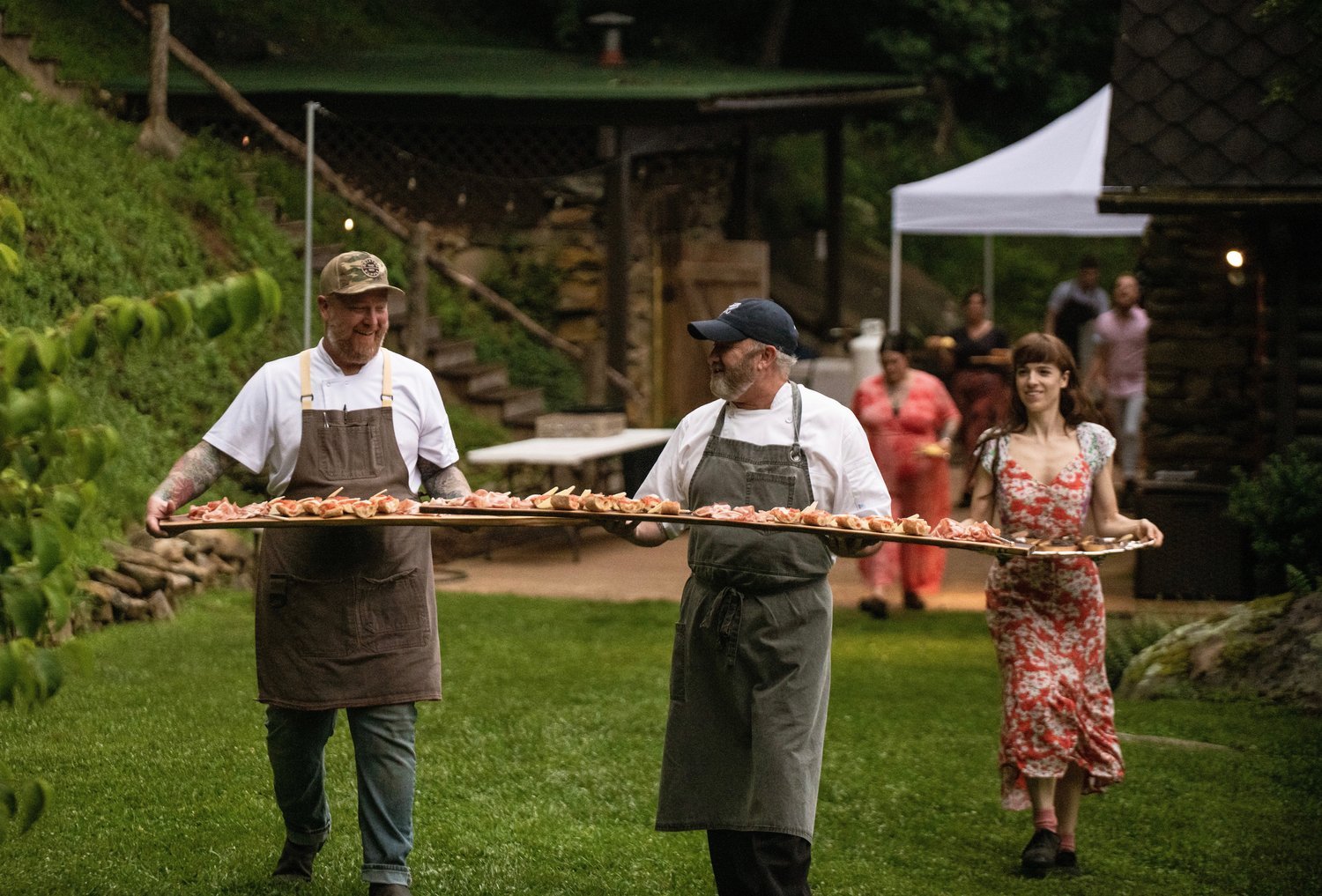
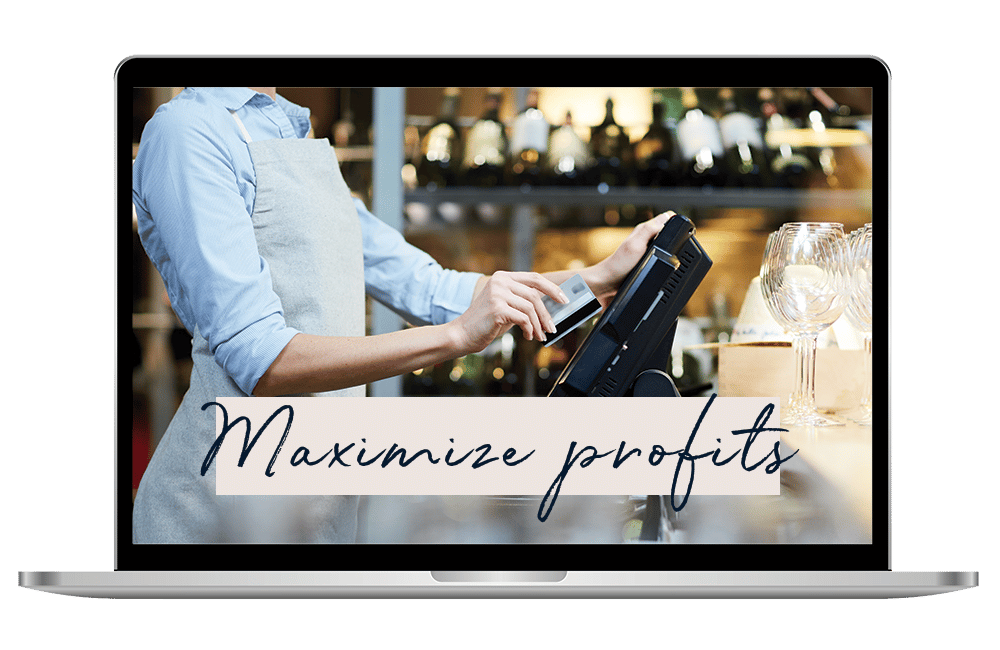
The three costly mistakes you could unknowingly be making?
Find out in this FREE guide and restaurant assessment specifically designed to reveal the unexpected hurdles standing between you and exponential business growth.
Thank You To Our Sponsors
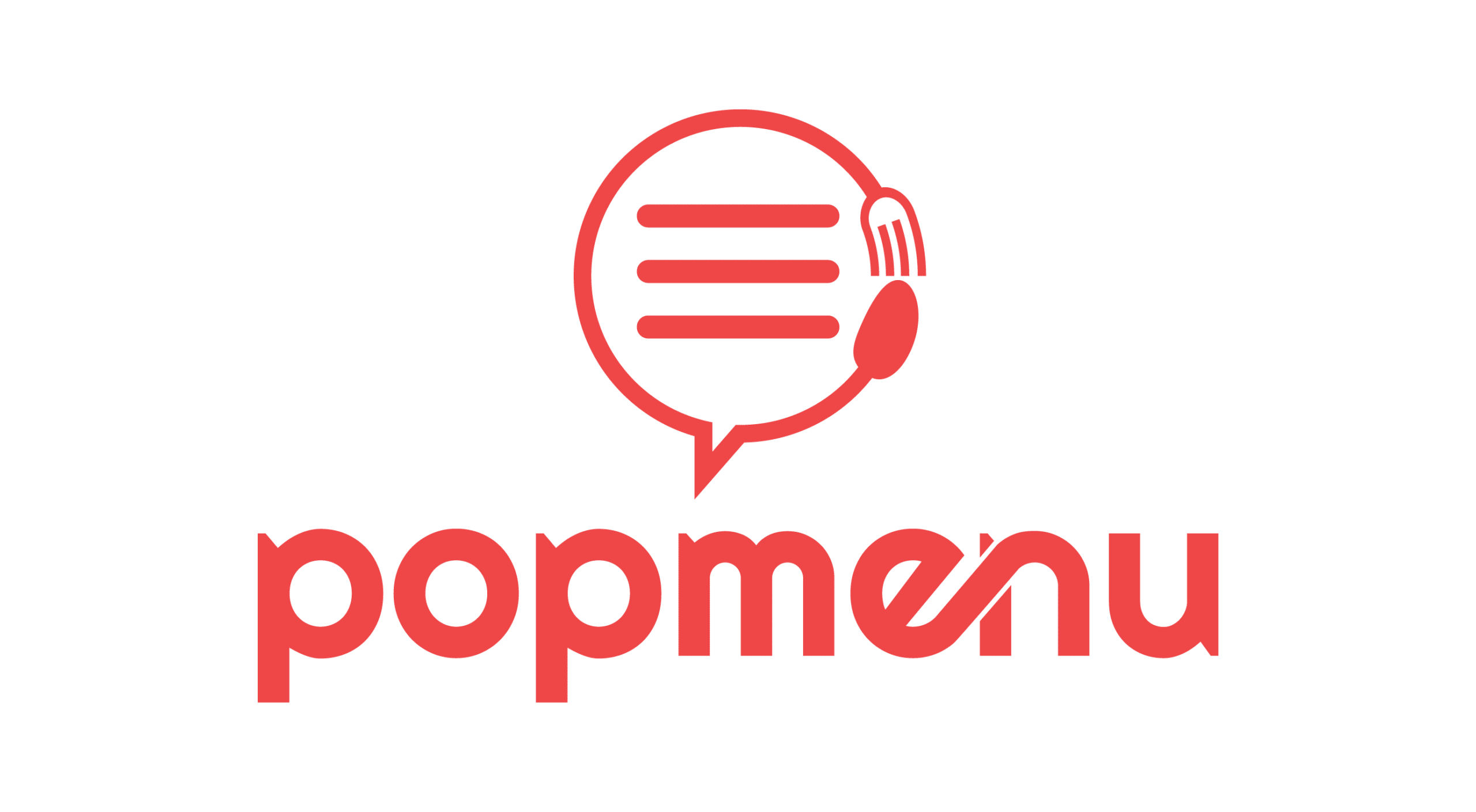
For a limited time only, popmenu is offering our listeners $100 off your first month plus an unchanging lifetime rate.
Request a demo.

The World’s 1st Incentive Management Platform for Restaurant Servers. Sparkplug Will Pay $200 For Your Restaurant’s 1st Incentive Campaign

Automate Your Sales Tax. Why Not Try Davo FREE for 30 Days.
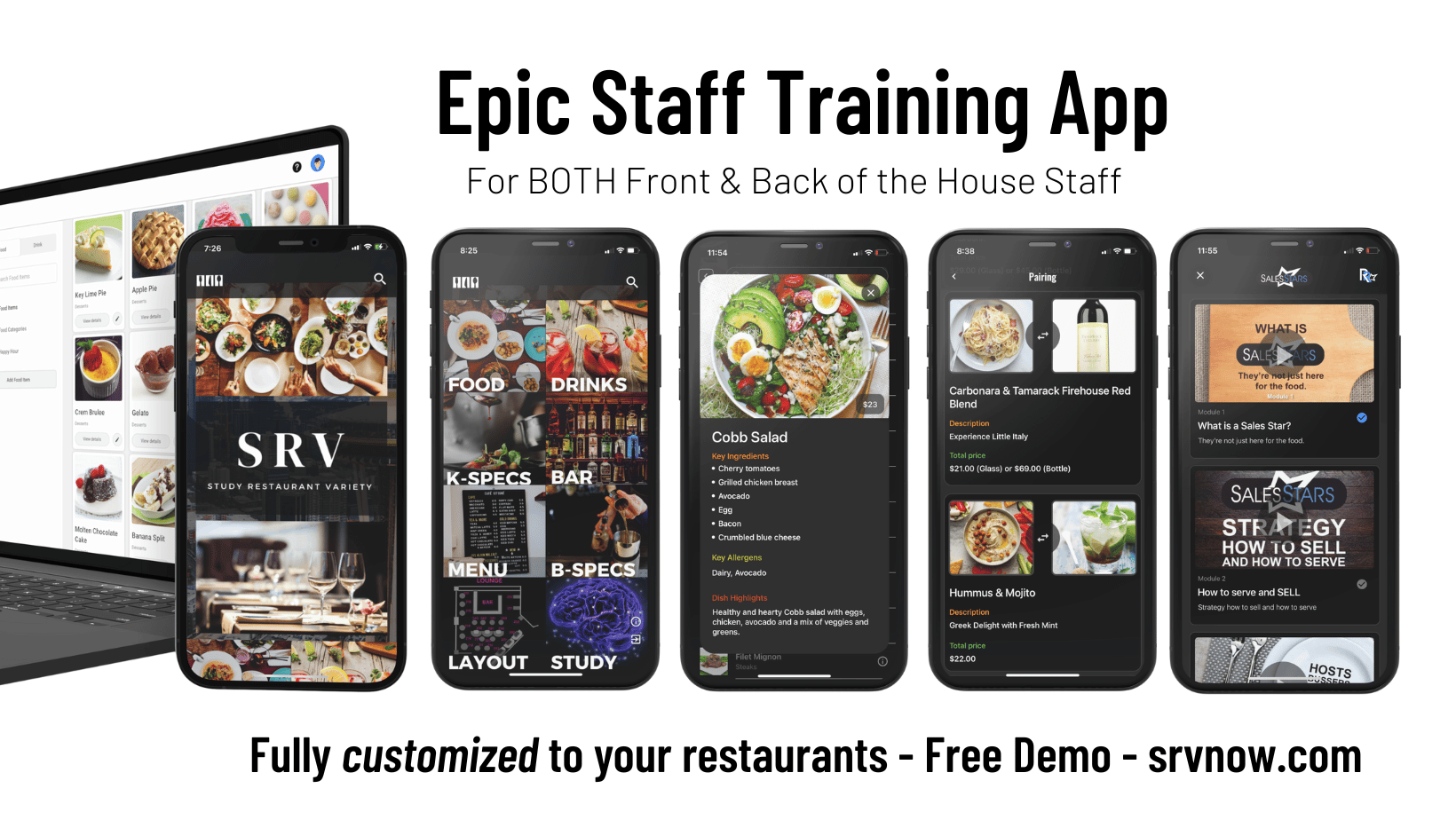
SRV teaches your team to profitably sell and accurately create the food and drinks at your restaurant.
Unlock Staff Potential and Maximize Sales
Want to become a podcast sponsor?
Please get in touch with Roger at roger@restaurantrockstars.com
